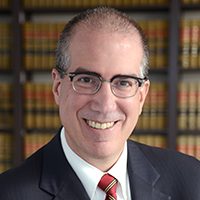
How A New Court Decision Could Change Bank M&A
Brought to you by Arnold & Porter

 A recent decision by the Delaware Supreme Court relating to a merger between two pharmaceutical companies that was terminated before closing could have implications on bank mergers and acquisitions.
A recent decision by the Delaware Supreme Court relating to a merger between two pharmaceutical companies that was terminated before closing could have implications on bank mergers and acquisitions.
On Dec. 7, 2018, the Delaware Supreme Court affirmed the lower court’s ruling in Akorn v. Fresenius Kabi that a Material Adverse Effect (“MAE”) had occurred with respect to Akorn under the terms of its merger agreement with Fresenius.
The Supreme Court upheld the lower court’s determination that (1) Akorn had suffered an MAE under the terms of the agreement that excused Fresenius from its obligation to close the transaction, and (2) Fresenius properly terminated the merger agreement because of Akorn’s breach of its regulatory representations and warranties under the merger agreement, which gave rise to an MAE, and Fresenius had not materially breached the merger agreement (which would have prevented it from exercising its termination rights).
Why the Akorn Case Is Important
- This is the first ruling in Delaware that an MAE had occurred in a merger transaction, allowing the buyer to walk away from a signed merger agreement.
- The lower court’s opinion provides unprecedented guidance for future negotiation and litigation of MAE clauses.
- The decision is applicable to all industries, including the banking industry, and makes it clear that, first, the heavy burden to establish an MAE with respect to the target remains with the buyer.
How The Case Impacts Bank M&A
- Merger partners should carefully consider the categories of events or changes, as well as any specific events, that should be excluded from the MAE definition, ensuring that the definition accurately reflects the agreed upon allocation of risk between the parties.
- Sellers should exclude industry-wide changes impacting the seller, while buyers should be mindful to provide that broad industry changes that disproportionately affect the seller are not carved out from the definition.
- Typical carve-outs from the MAE definition in a bank merger agreement include: changes in laws and regulations affecting banks or thrift institutions, changes in GAAP, changes in the value of securities or loan portfolio or value of deposits or borrowings resulting from a change in interest rates, and changes relating to securities markets in general.
- Buyers who are uncomfortable with the broad definition of an MAE, even following Akorn, and are significantly larger than the seller may wish to consider inclusion of a few specific financial closing conditions to supplement the broad MAE clause.
- Buyers in the bank M&A context should in good faith continue the regulatory approval process even while contemplating terminating the deal over a possible MAE — having “clean hands” matters.
How the Court Found an MAE
Fresenius, a German pharmaceutical company, and a U.S. generic drug manufacturer, Akorn, formally agreed in April 2017 to merge.
Shortly after, Akorn’s financial performance “fell off a cliff;” its revenues declined the next four quarters by 29 percent, 29 percent, 34 percent and 27 percent, respectively. Its operating income plummeted 84 percent, 89 percent, 292 percent and 134 percent, respectively, during the same period.
Fresenius terminated the merger agreement in April 2018, asserting that Akorn had suffered a general MAE. Fresenius further asserted it had an explicit right to terminate the merger agreement because Akorn breached its regulatory compliance representations and warranties. Akorn’s lawsuit followed, seeking for the court to force Fresenius to close the transaction.
The Court of Chancery determined Akorn suffered a general MAE, which resulted from issues that disproportionately affected Akorn compared to similar companies in its industry. Focusing on the plain text of the merger agreement, the court determined that Akorn bore the general risk of the MAE and through several carve-outs to the provision, Fresenius bore the “systemic” risks related to Akorn’s industry. However, through specific exclusions from these carve-outs, the risk was shifted back to Akorn in the event that the risks disproportionately affected Akorn’s business as compared to other participants in its industry. In analyzing whether the effect was “material,” the court stated the effect should “substantially threaten the overall earnings potential of the target in a durationally-significant manner.”
In other words, the court determined that Akorn’s dramatic downturn in performance was significant because it had persisted for a year and had no sign of abating, rejecting Akorn’s argument that any assessment of the decline in its value should be measured not against its performance as a standalone entity but against its value to Fresenius as a buyer.
Conclusion
This case is directly applicable to the banking industry. Many banks suffered dramatic declines in earnings during the financial crisis that would be considered durationally significant within the framework reinforced by Akorn. Causes included massive credit losses, drastic margin compression and the regulatory reaction to the crisis. Banks need to take into account their risk profile and that of their merger partner when negotiating the MAE definition and consider how it would work under a variety of adverse economic environments.


